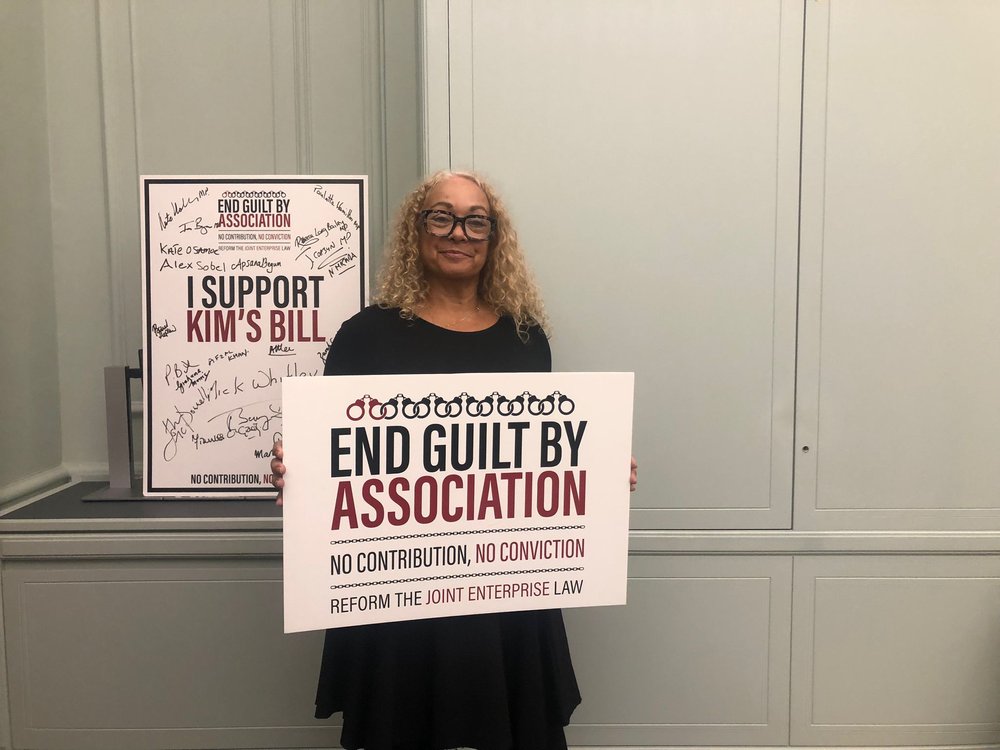Joint enterprise was a ‘worse’ miscarriage of justice than the Post Office Horizon scandal, an MP told parliament yesterday. Kim Johnson MP was speaking in a debate about the Criminal Justice Bill in relation to her amendment to limit the scope of the discredited common law doctrine to individuals who made a ‘significant contribution’ to an offence in order to be liable. Her amendment to the broadranging Bill, which was introduced in November and now in the report stage, was backed by 40 MPs.
Kim Johnson, Labor MP for Liverpool Riverside, cited a six-month pilot by the Crown Prosecution Service which revealed that more than half of those prosecuted under joint enterprise were aged under 25 ‘with black youth 16 times more likely to be prosecuted under joint enterprise laws than their white counterparts’. She said: ‘This miscarriage of justice is worse than the Post Office Horizon scandal, because it involves children as young as 13 being convicted and incarcerated for a crime that they did not commit, and being given a whole life sentence, with little or no option for appeal,’ she said.
The Tory MP and co-chair of the All Party Parliamentary Group on Miscarriages of Justice, Sir Bob Neill said: ‘Joint enterprise remains a problem.’ Neill, who chairs the House of Commons’ justice committee, said he was ‘not convinced that its wording is right’. ‘But we have to return to this matter, for the very important reason that many families of those who have been convicted under joint enterprise had hoped that the Supreme Court decision in the case of Jogee… would see a number of people’s convictions quashed. In reality, subsequent decisions of the Court of Appeal have tended to narrow the approach in Jogee, very often because of the factual situations, which vary greatly. We do therefore need to look at this issue… . There are certain circumstances in which there is a role for joint enterprise, but the expansion of it beyond what most people regard as reasonable is a matter of real concern. I hope we can continue to work cross party to find a better solution.’
The justice minister Laura Farris said that the new clause ‘would caveat and curtail’ the law of joint enterprise. ‘I think that people who participate in crime, even on the periphery, should not escape liability, and I do not think anyone can advance a credible argument that they should,’ she added.
However, there was pushback from her own party. The Conservative MP Rob Butler took issue with the concern that a threshold of ‘significant contribution’ was ‘too vague’. ‘… “Significant” is commonly used in criminal justice, and judges and magistrates are very experienced in advising juries or lawyers on deciding what “significant” means. The Government need to come up with something a little more compelling than the suggestion that “significant” is not a meaningful word.’
As reported on the Justice Gap, the Labour Party has committed to ‘reform’ joint enterprise.
Kim Johnson pointed to evidence that ‘clearly shows’ that joint enterprise was being ‘widely used as a dragnet to maximise convictions’. ‘We need only scrutinise the Old Bailey daily court lists to witness how widespread this practice is,’ the MP said. ‘Joint enterprise allows the prosecution to use a racist gang narrative to imply guilt, and to persuade juries using prejudicial stereotypes in place of cold, hard evidence, in a way that is often compared to Russian roulette.’
She flagged an application to the Criminal Cases Review Commission last year where ’11 defendants, all black, were collectively convicted and sentenced to a total of 168 years in prison for a single murder’. She said: ’Evidence included a rap video made online a year earlier, photos of some of the defendants using hand signs, and the alleged favouring of the colour red. I hope that the CCRC, which twice rejected Andrew Malkinson’s request to review, will look at this request more favourably.’
The MP cited data from Manchester Metropolitan University that nearly £250 million was spent each year on conviction convicting on average 1,088 people every year. ‘Tte total cost to the taxpayer of their future punishment is a colossal £1.2 billion. ‘If the social cost of joint enterprise were not conclusive, the economic cost must be the final nail in the coffin for this shocking miscarriage of justice,’ she said.




